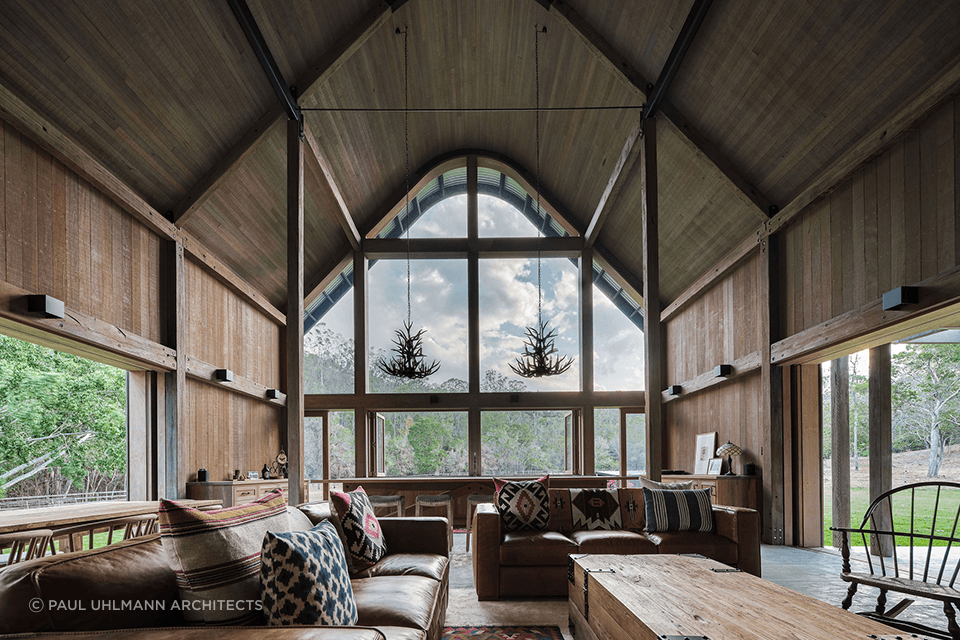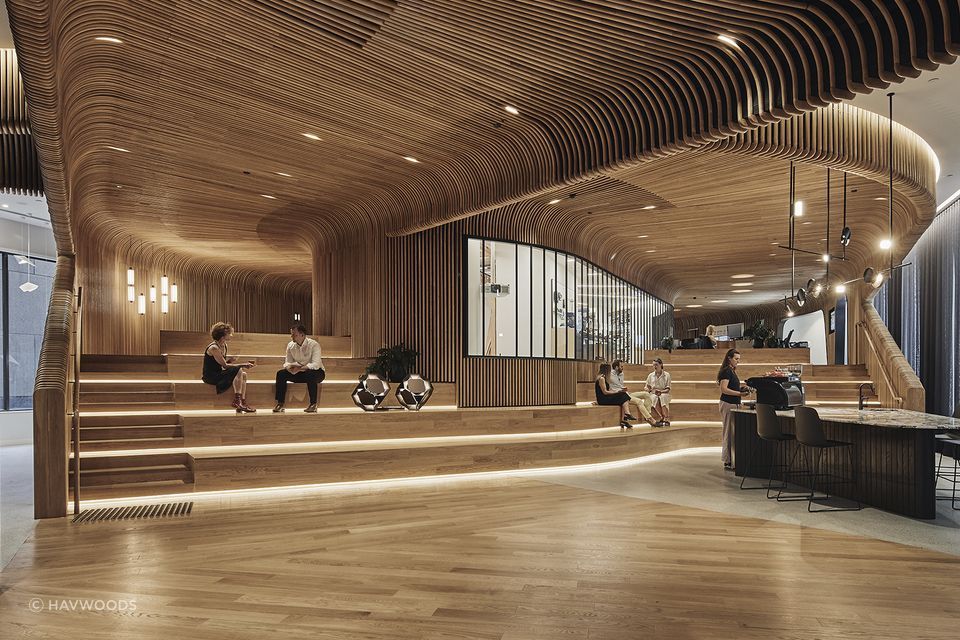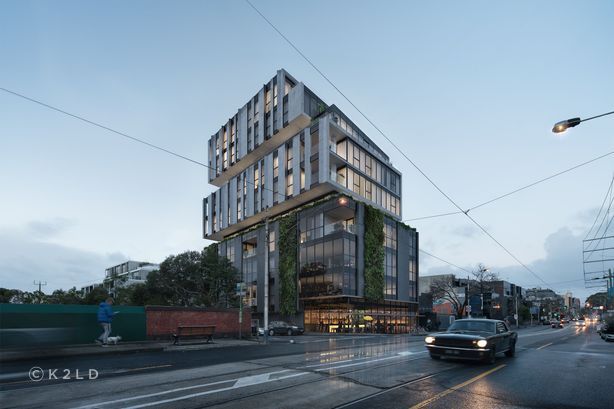When do you need an architect? A comprehensive guide for your next project

While the role of an architect may seem straightforward, their work involves much more than meets the eye. Architects transform abstract concepts into functional, aesthetically pleasing structures, balancing creativity with practical constraints. Their expertise ensures that projects meet client expectations and comply with building codes and regulations. Although not every project requires an architect, knowing when to engage one is crucial to creating something exceptional.
Projects that require an architect
At a high level, you’ll need an architect whenever creating a new space that impacts your property’s exterior. Moreover, an architect is essential when creating a new residential or commercial building from the ground up. They handle the design and planning phases, ensuring the project adheres to local regulations and building codes. Their expertise ensures the new structure is functional, safe, and visually appealing. This comprehensive approach helps create a building that aligns with your vision while meeting all legal requirements.
1. Designing a modern new home or building
An architect is essential when creating a modern new residential or commercial building from the ground up. Their expertise ensures the new structure is functional, safe, and visually appealing using the latest design techniques and incorporating the best products and materials. They are also experts in bespoke architectural design, with the ability to create something truly unique and distinctive. This comprehensive approach helps create a building that aligns with your vision.
2. Major renovations
Architects offer valuable expertise for significant alterations to an existing structure. They provide innovative design solutions that enhance functionality and aesthetics, ensuring the renovation meets your goals. Architects can also address challenges from working with an existing building, such as integrating new features with old structures. Their involvement ensures that renovations are visually appealing, structurally sound, and efficient.
3. Restoration projects
Restoring or preserving historic buildings requires an architect’s specialised knowledge. They ensure that the historical integrity of the building is maintained while modernising its infrastructure. Architects carefully balance preserving original features with necessary updates to meet current standards. This expertise is crucial for projects where maintaining the building’s historical value is as important as its functionality.
4. Complex architectural projects
Architects are particularly valuable for projects with complex requirements. Their specialised knowledge provides creative solutions, whether dealing with unusual shapes, advanced technological systems, or sustainable design goals. They navigate challenges from intricate designs and ensure all elements work together seamlessly. This approach is essential for projects pushing conventional design and construction boundaries.
5. Landscaping and outdoor spaces
Architects can also design outdoor spaces, such as gardens and patios, to complement the main building. Their approach ensures that these areas enhance the overall design and functionality of the property. Architects create beautiful and practical environments by integrating outdoor spaces into the broader design scheme. This holistic approach ensures that every aspect of the property, inside and out, works harmoniously together.

When you don't need an architect
While architects are invaluable for complex projects requiring innovative design solutions and extensive regulatory knowledge, their expertise might not be necessary in some situations. A building designer may be sufficient for straightforward renovations, minor home improvements, or small-scale additions. These professionals can handle tasks such as updating interiors, adding simple extensions, or making aesthetic changes without needing architects' advanced design and planning services. Additionally, working with a qualified builder or tradesperson might be a more cost-effective solution for projects that do not involve significant structural changes or zoning considerations. As, a result, some projects that don’t necessarily require an architect include:
1. Small home build
Building designers can create smaller homes with cost-effective designs. These typically include essentials like a three-bedroom, two-bathroom layout tailored to suit the homeowner's needs. However, building designers can face some limitations due to registration and licensing in certain jurisdictions.
2. Minor home renovations
Minor home renovations involve updating areas such as kitchens, bathrooms, or living spaces. These projects often focus on improving aesthetics and functionality without major structural changes. A building designer can help with layout adjustments and material selections, ensuring the new design integrates seamlessly with the existing structure.
2. Small extensions
Small extensions include adding a sunroom, deck, or extra bedroom to a home. These projects enhance living space and can be tailored to fit specific needs or preferences. A builder can assist with planning the extension to complement the current design and comply with building regulations.
3. Interior redesign
Interior redesign involves revamping layouts and decor to refresh a home’s look and feel. This may include rearranging spaces, updating finishes, or incorporating new design elements. Interior designers can provide creative solutions and ensure the redesign enhances aesthetics and functionality.
4. Outdoor spaces
Creating outdoor spaces such as patios, pergolas, or garden structures adds functionality and enjoyment to your property. These projects extend living areas into the outdoors, making them ideal for entertaining or relaxation. A builder can help design and integrate these spaces into the existing landscape.
Related article: How to choose between an architect or building designer

Other things architects can do
Architects offer more than just design and construction oversight. Their role extends into managing legal and financial aspects, ensuring that projects comply with regulations and stay within budget. Moreover, their expertise allows them to navigate complex requirements, balancing creative vision with practical constraints.
1. Budget management
An architect plays a crucial role in managing your project’s budget, ensuring you achieve the best value for your investment. Their expertise balances design ambitions with financial constraints and offers creative, cost-effective solutions. They can suggest alternative materials, efficient construction methods, and smart design choices that minimise costs while maintaining quality. By planning meticulously, architects help avoid unexpected expenses, such as delays or structural issues and coordinate closely with contractors to keep the project on budget and schedule.
2. Project management
Architects often act as project managers during construction, overseeing the entire process. They coordinate with contractors to ensure that the project progresses according to the design and stays within budget. Their involvement helps prevent common issues such as delays and cost overruns by maintaining a close watch on the project's execution. Effective project management by an architect ensures that the final outcome meets your expectations and adheres to the planned budget.
3. Improve property value
Incorporating an architect into your project can significantly enhance the value of your property. Architects provide design improvements that maximise potential investment returns through thoughtful planning and innovative solutions. Their expertise ensures that the enhancements increase the property’s market value and improve its functionality and appeal. This strategic approach to design can lead to substantial benefits when it comes time to sell or appraise the property.
4. Legal navigation and documentation
In Australia, certain projects require an architect to handle building certifications, local council approvals, and safety standards. This is particularly true for large-scale developments, commercial buildings, and residential projects that exceed specific size or height limits. Architects ensure that alterations respect historical integrity in heritage areas like Sydney and Melbourne while meeting modern regulations. Coastal regions like Queensland also need architectural oversight to address environmental risks like flooding or cyclones. Architects’ deep understanding of local building laws and planning regulations is crucial for streamlining approvals and avoiding compliance issues, ensuring that projects remain on track and within legal boundaries.
The process of working with an architect
Working with an architect is a collaborative journey that transforms your vision into reality. From the initial consultation to the final review, each stage is meticulously planned to ensure the project runs smoothly, meets your expectations, and achieves outstanding results.
- Initial consultation: Meet the architect to discuss your project’s goals, budget, and design preferences. This helps them understand your vision and requirements.
- Conceptual design: The architect creates initial sketches or design concepts, often using 3D models or renderings, to present ideas for your project’s layout and aesthetics.
- Design refinement: Based on your feedback, the architect refines the design, adjusting details to ensure it meets your needs and preferences.
- Detailed plans: Once the design is finalised, the architect develops detailed drawings, specifications, and technical documents that contractors will use to guide the construction process.
- Permit and approval process: The architect helps navigate local building regulations and prepares the necessary paperwork to obtain permits and approvals from authorities.
- Contractor selection: The architect may assist in selecting contractors by reviewing bids and ensuring the contractor’s capabilities align with the project’s needs.
- Construction oversight: During construction, the architect monitors progress, ensures the design is being implemented correctly, and resolves any design issues that arise.
- Final review and completion: The architect reviews the project once construction is completed to ensure it aligns with the design and meets your expectations. Any final adjustments are made as needed.
By following this structured process, you can ensure that your project runs smoothly, stays within budget, and achieves the desired outcome with the expertise and guidance of your architect.


Expected costs of hiring an architect
The cost of hiring an architect varies depending on the project's size, complexity, and location. Architects typically charge a percentage of the overall project cost, ranging between 5% and 15%. Smaller projects or those with fewer design complexities may incur lower fees, while more intricate builds may require higher percentages due to the additional work involved. Some architects offer hourly rates or fixed fees for specific project phases, such as initial consultations or conceptual designs. Discussing fees upfront to ensure transparency and determine whether the architect's services align with your budget and project requirements is important.
How to choose an architect checklist
- Research architects with experience in your specific project type (residential, commercial, heritage, sustainable, etc.).
- Review their portfolio to ensure their design style aligns with your vision.
- Ask for client references to gauge previous client satisfaction and project outcomes.
- Assess communication: Ensure clear, effective communication with the architect to foster strong collaboration.
- Check for licenses and accreditations with professional bodies, such as the Australian Institute of Architects.
- Discuss fees and processes upfront to avoid surprises and ensure transparency throughout the project.

Find right architect for your next project
Deciding when to involve an architect can significantly impact the success of your project, whether you're constructing a new building, undertaking major renovations, or restoring a historic structure. Architects bring essential expertise to complex design challenges, ensuring that projects are visually appealing but also functional and compliant with regulations. Their role in managing budgets, navigating building codes, and overseeing construction can lead to a more efficient and cost-effective process.
By understanding the process of working with an architect and knowing how to choose the right one, you can make informed decisions that align with your goals and ensure the project's success. Investing in an architect can transform your vision into reality, providing valuable guidance and creativity throughout the journey. Consulting an architect is a prudent step towards achieving a well-designed and legally compliant outcome for any significant construction or renovation project.
Related article: What do architects do? An essential read before your next project
